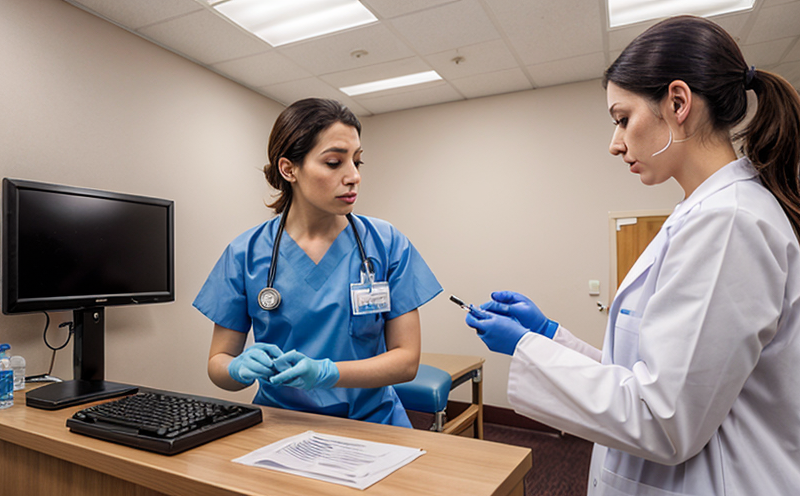Veterinary Biopharmaceutical Toxicity Screening in Rodent Models
In the realm of veterinary biopharmaceutical development and testing, ensuring the safety and efficacy of new drugs is paramount. This service focuses on rodent models, which are widely used due to their genetic similarity to humans and ease of handling. The primary goal is to identify potential toxicological risks early in the drug development process. Rodents such as mice and rats are chosen for their rapid reproduction, short lifespan, and ability to provide large sample sizes.
Our approach involves a comprehensive suite of tests that cover various aspects of toxicity, including systemic toxicity, local toxicity, and genotoxicity. The service is designed to meet the stringent requirements set by regulatory bodies such as the U.S. Food and Drug Administration (FDA) and the European Medicines Agency (EMA), ensuring compliance with international standards like ISO and OECD.
The testing process typically begins with a thorough literature review of existing data on the compound being tested, followed by a detailed experimental plan tailored to the specific biopharmaceutical. This includes determining appropriate dose levels, selection of suitable strains, and identification of critical endpoints for toxicity assessment. Once the experimental design is finalized, we proceed with detailed specimen preparation and administration.
For systemic toxicity testing, rodents are exposed to the compound under controlled conditions. Blood samples are collected at various time points post-administration to measure biomarkers indicative of organ damage or dysfunction. Local toxicity tests involve topical application on specific tissues or organs to assess adverse effects in localized areas. Genotoxicity studies focus on detecting any DNA damage that could lead to mutations.
The data generated from these tests is meticulously analyzed using statistical methods and compared against control groups. The results are then compiled into comprehensive reports, providing insights into the safety profile of the biopharmaceutical across different stages of development. This service not only helps in identifying potential risks but also aids in optimizing drug formulations for better patient outcomes.
Our team of experienced scientists employs advanced instrumentation and technology to ensure precision and accuracy throughout the testing process. This includes sophisticated analytical tools like mass spectrometry, high-performance liquid chromatography (HPLC), and nuclear magnetic resonance (NMR) spectroscopy. These technologies allow us to detect even minute changes in biomarkers, ensuring robust data that can be trusted by regulatory authorities.
By leveraging rodent models, we provide a cost-effective yet reliable method for early-stage toxicity screening. This allows pharmaceutical companies to make informed decisions about advancing compounds into later stages of development or discontinuing those with unacceptable safety profiles. Our service is designed to streamline the drug discovery process while adhering to strict quality control measures and ethical considerations.
Benefits
The benefits of our veterinary biopharmaceutical toxicity screening in rodent models are manifold:
- Comprehensive coverage of systemic, local, and genotoxic effects
- Accurate data through advanced analytical techniques
- Precision in dose-response analysis
- Early identification of potential safety issues
- Cost-effective compared to more extensive testing phases later in development
- Compliance with international regulatory standards
- Supports ethical and responsible drug development practices
We ensure that our clients receive timely results, which are crucial for timely decision-making in the biopharmaceutical industry. By partnering with us, companies can reduce risks associated with late-stage failures due to safety concerns.
Industry Applications
Veterinary biopharmaceutical toxicity screening using rodent models is particularly relevant in the following applications:
| Application Area | Description |
|---|---|
| Pharmaceutical Development | Identifies potential toxic effects early, optimizing drug formulation and reducing development costs. |
| Biotechnology Research | Evaluates the safety of genetically modified organisms (GMOs) used in veterinary medicine. |
| Cosmetics & Consumer Products Testing | Assesses potential skin irritants and other adverse effects in products intended for animal use. |
| Regulatory Compliance | Aids in meeting the stringent requirements set by regulatory authorities worldwide. |
Rodent models are also valuable tools in academic research, helping to elucidate mechanisms of toxicity and guide future therapeutic strategies. Their use ensures that new biopharmaceuticals meet high safety standards before they reach clinical trials or market release.
Customer Impact and Satisfaction
The impact of our veterinary biopharmaceutical toxicity screening service extends beyond the laboratory. By providing accurate, timely, and reliable data, we ensure that our clients can make informed decisions throughout the drug development process.
- Reduced Development Costs: Early identification of risks saves time and money by avoiding costly mistakes later in development.
- Faster Time-to-Market: By identifying potential issues early, companies can accelerate their product launch timelines.
- Better Product Quality: Our comprehensive testing ensures that only safe and effective biopharmaceuticals reach the market.
- Increased Customer Trust: Compliance with international standards enhances the reputation of our clients in the global marketplace.
We strive to exceed customer expectations by maintaining high-quality standards, providing clear communication, and offering flexible solutions tailored to individual needs. Our commitment to excellence has earned us a strong reputation among leading pharmaceutical and biotechnology companies worldwide.





